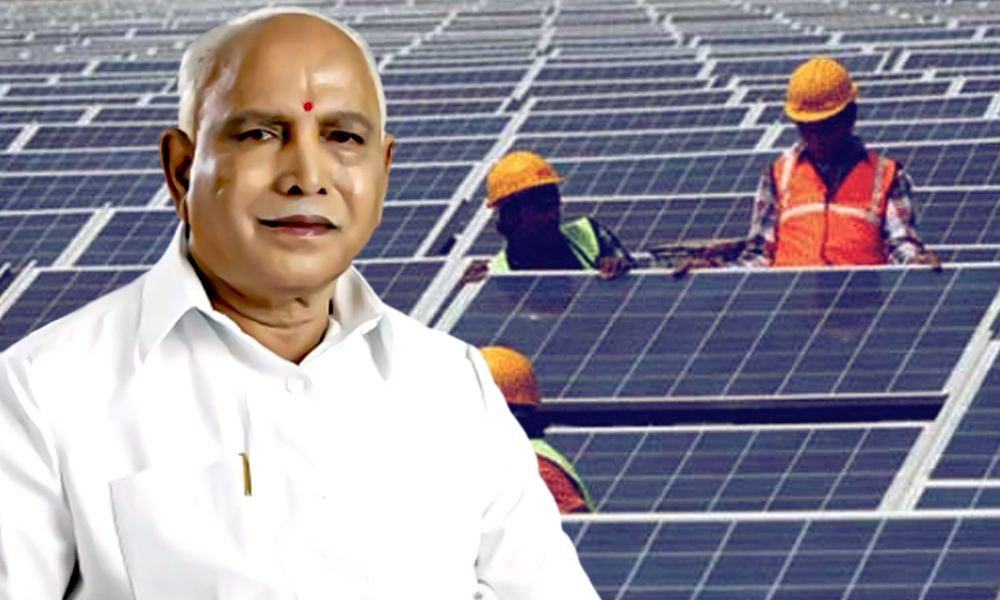
Image Credits: Saurenergy, The Times of India
Karnataka Meets 20% Of Everyday Power Requirements Through Solar Energy
Writer: Palak Agrawal
Palak a journalism graduate believes in simplifying the complicated and writing about the extraordinary lives of ordinary people. She calls herself a " hodophile" or in layman words- a person who loves to travel.
Karnataka, 2 April 2021 5:04 AM GMT
Editor : Prateek Gautam |
A free soul who believes that journalism, apart from politics, should stand for social cause and the environment.
Creatives : Rajath
A free spirit who find meaning in life with the virtue of creativity and doing job par its excellence, animal lover and traveller by heart.
At 7,346 MW, Karnataka has the largest installed capacity of solar power in the country and is home to the biggest local plant.
Karnataka has emerged as the leading state in harnessing sunlight. About 20 per cent of the state's everyday power requirements are being met by solar power plants thereby accelerating its progress in the overall clean energy mission.
Green energy, derived from renewable resources, meet at least 45 per cent of the state's daily power needs and solar power is one of the major sources. Minister of State for Power (Independent Charge) RK Singh told Lok Sabha that Karnataka was making efficient use of solar energy, as reported by The Times of India.
Data furnished by the Karnataka Power Corporation Limited pointed out that solar energy contributes to more than half of the state's installed capacity of green energy (13,544 MW). At 7,346 MW, Karnataka has the largest installed capacity of solar power in the country and is home to the biggest local plant.
Reports have hinted at the government's plans to expand the capacity by setting up a solar park at Firozabad of Kalaburagi district. The proposed project will be established at a cost of ₹350 crores and have a capacity of 500 MW.
"The first-mover advantage has given us the edge to expand our infrastructure. We will see such parks become the norm," said Additional Chief Secretary (Energy) Kapil Mohan.
The government has also faced several challenges while striving to utilise renewable energy. It has decided to reduce its focus on rooftop solar power generation since the scheme has become commercial. The scheme was rolled out with an intention to make residential and semi-commercial sectors self-sufficient, however, it was misused, resulting in loss of funds. Additionally, an increase in the cost of solar panels, due to factors linked to the border standoff between India and China, has become a concern for the officials.
Also Read: Google Maps To Start Showing Green Routes To Reduce Carbon Footprint Generated During Journey
 All section
All section














